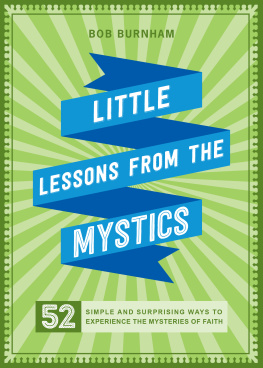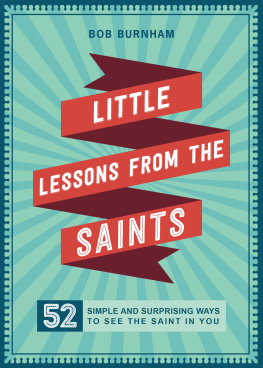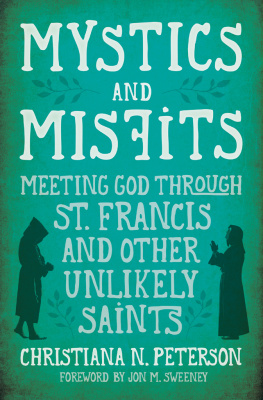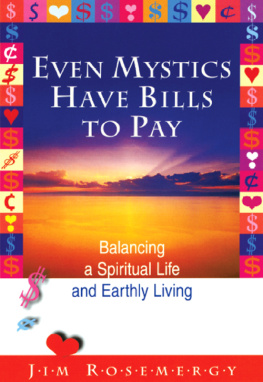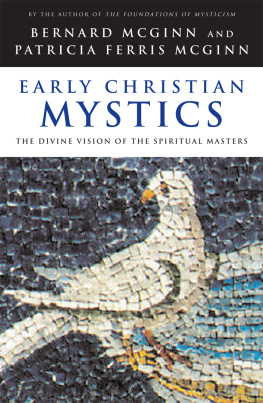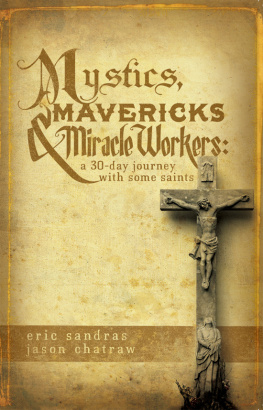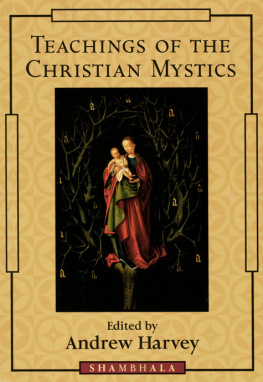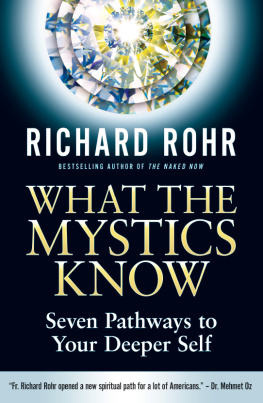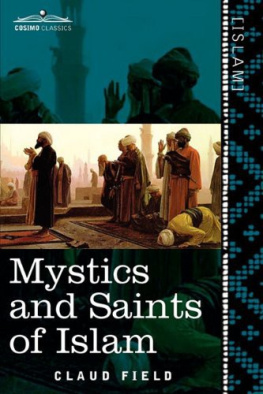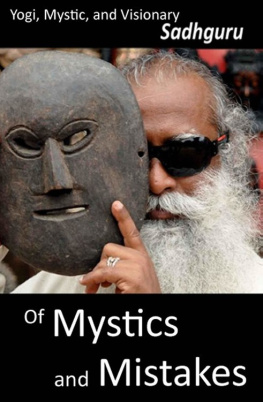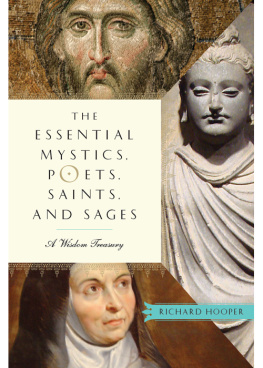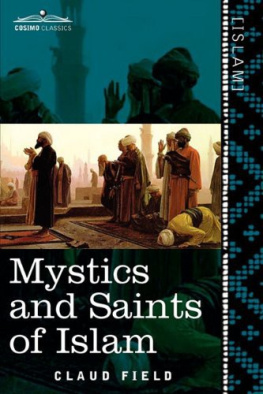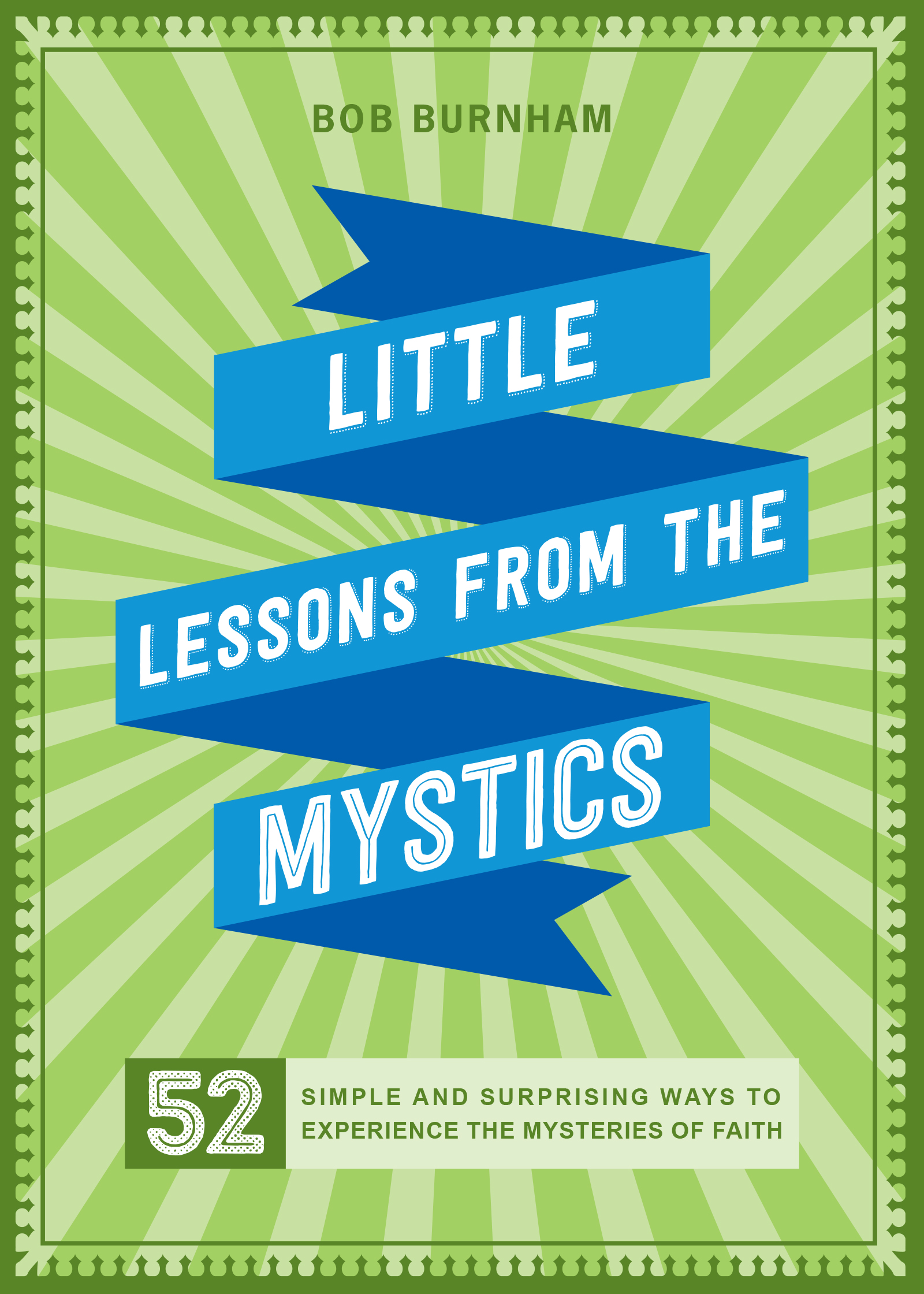
3441 N. Ashland Avenue
Chicago, Illinois 60657
(800) 621-1008
www.loyolapress.com
2021 Bob Burnham
All rights reserved.
Scripture quotations are from New Revised Standard Version Bible: Catholic Edition, copyright 1989, 1993 National Council of the Churches of Christ in the United States of America. Used by permission. All rights reserved worldwide.
Cover art credit: cristinabagiuiani/iStock/Thinkstock, Shutterstock
eBook ISBN: 978-0-8294-4925-9
Based on the print edition: 978-0-8294-4924-2
Library of Congress Control Number: 2020947506
20 21 22 23 24 EPUB 5 4 3 2 1
If the doors of perception were cleansed everything would appear to man as it is, infinite.
For man has closed himself up, till he sees all things through narrow chinks of his cavern.
William Blake
In this book, I share little lessons from mystics.
Mysticism is often defined as union with the divine. Mystics, I always thought, had supernatural experiences like ecstatic dreams and visions or spiritual markings like the stigmata, or could defy the laws of physics by levitating or bi-locating. Maybe thats the reason I was attracted to mysticism in the first place. I mean, seriously, who wouldnt want superpowers? Look out, Spider-Man. Now these arent lessons about how to be a mystic. Nor are they lessons that try to explain an understanding of some of the greatest questions our faith poses: How is Jesus true God and true human? Why did Jesus have to die? What did Jesus mean when he told us to love one another? How is God three and one at the same time? The truth is, I cant help you answer those questions because Im not sure of them myself.
After spending time getting to know the stories of different mystics, I know now that mysticism is about recognizing that our ordinary experiences are supernatural because God is present in them. We just have to learn how to recognize Gods presence. Thats what I hope to accomplish with this book: I hope the lessons I share here will help you find God in all things, in places you would expect him to be, in places youd never think of looking, and in places where you were sure God couldnt be.
We need to learn how to do this now more than ever. We face major challenges as a species. Our planet is crying out to us for help, and we cannot hear her because we cannot find God in our sister Mother Earth. We are infatuated by violence because we are unable to find God in our sisters and brothers. We chase after comfort and happiness because we cannot find God in ourselves.
We cannot find God because we have spent our time looking for answers to our deepest questions. Instead, we need to learn to be comfortable with mystery. By mystery, I mean these basic questions: Who is God? and Who am I? They are the heart of the mystic, that is, someone who lives the mysteries, who lives with these questions because every answer is, at best, inadequate or always evolving.
I offer lessons from fifty-two people whose writings, stories, and examples have helped me find God in all things. Each of them presents a specific mystery that helps me live one of the four biggest mysteries of my Catholic faith: the Mystery of the Incarnation (the Second Person of the Holy Trinity became human), the Paschal Mystery (the suffering, death, resurrection, and ascension of Jesus Christ), the Mystery of the People of God (Jesus Christ is present in his Church), and the Mystery of the Most Holy Trinity (The Three Persons of the Trinity: God the Father, God the Son, and God the Holy Spirit are One).
I begin each lesson with a brief summary of what I learned from a mystic. These are not detailed biographies or summaries of mystical teachings. Rather, I share with you how that mystic impacted me and my faith and how I live the Christian life. What I offer is my own wisdom, not theirs. I make no claim of authority. I readily admit that I do not fully grasp what these mystics taught in the entirety of their lives. I invite you to investigate these mystics more closely on your own. In fact, I hope that you become lifelong friends with the people in this book and learn from them yourselves.
Following this summary is a short practice to help you find God in all things. This section begins with a short Scripture verse for you to ponder, followed by something you can do to livethat is, to be aware ofthe following mysteries in your daily life:
The Incarnation. To encounter the Mystery of the Incarnation is to see that Christ is the model for all created things. We can find God because, in becoming human, God found us.
The Paschal Mystery. This mystery helps us understand that even though suffering is not something we seek, it is part of the process of holiness. Through the Paschal Mystery, we can find God in and through our suffering.
The People of God. The mysteries of Christ teach us how to live as part of a community. We are the People of Goda living, breathing body. This mystery reveals the fact that we find God in our relationships.
The Trinity. This is the mystery of Gods very self. To live this mystery is to enter into the flow of love between the Three Persons of the Trinity. We find God when we love others.
You may recognize some of the mystics I included in this book. You will meet St. Teresa of vila (who teaches me that I can find God in my body) and St. John of the Cross (who points out that using my imagination to find God has its limits). Youll encounter great mystics like Mechtild of Magdeburg (who shows me that falling in love is the surest path to finding God), Hildegarde of Bingen (who reminds me to find God in my rituals), and the great Dominican thinker, Meister Eckhart (who focuses on the necessity of detachment). Youll also meet people you may have never heard of, like Margery Kempe (who found God despite her many temptations) or Marguerite Porete (whose mysticism got her burned at the stake). There are also people you might not expect, people who dont fit the mold of a mystic: there are biblical figures like Abraham, Jacob, and Moses and modern thinkers like Karl Rahner, Richard Rohr, and Ilia Delio. Youll even meet people like Helen Prejean, the anti-death-penalty activist (who herself might be surprised that shes even mentioned here).
I included these people for a simple reason: each, in their own way, has showed me how to find God, and I hope they will help and inspire you in your faith journey. Some of these people are saints, meaning that they have been canonized by the Catholic Church. But many arent. That doesnt make them any less holy, nor does it mean that their lessons arent as valuable. You dont have to be canonized a saint to be a mysticall you have to do is seek God.
I wrote this book with the intention that you would spend a week with each mystic. Since there are fifty-two mystics in this book, you can spend an entire year finding God in all aspects of your daily life. But you dont have to use this book that way. You can use it as a way to deepen your prayer life during a liturgical season such as Advent (the mystics of the Incarnation are good for that) or Lent (the mystics of the Paschal Mystery would be great Lenten companions). You may simply want to use this book as an introduction to certain mystics or to learn a new practice to incorporate into your daily prayer.

